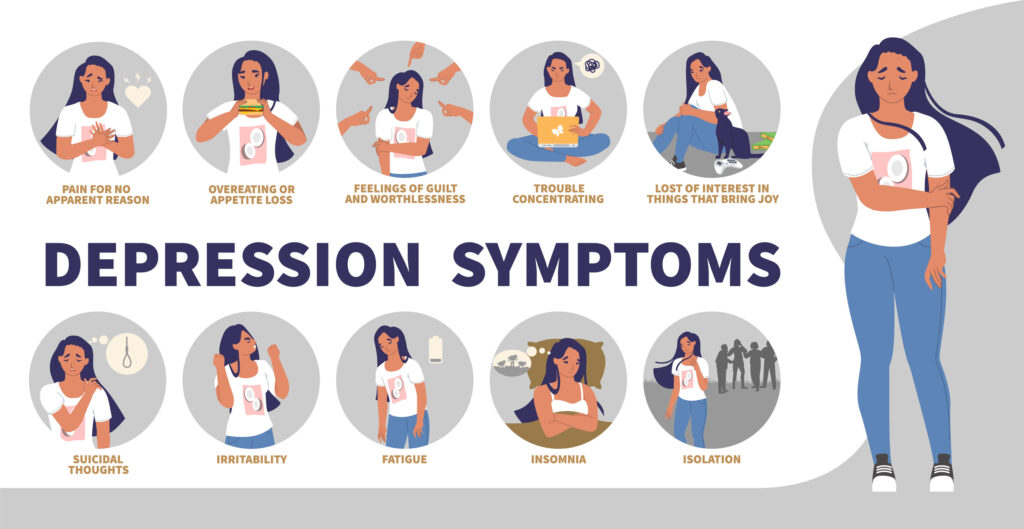Nurturing Women’s Mental Health: Dispelling Myths and Embracing Wellness

Mental well-being is a cornerstone of vitality, resilience, and empowerment. Yet, despite its profound significance, mental health remains shrouded in myths and misconceptions, particularly regarding women’s experiences. As advocates for women’s wellness, addressing these misconceptions head-on and fostering a culture of understanding, compassion, and support is imperative.
Myth #1: Depression Medication is a Sign of Weakness
One pervasive myth surrounding mental health, particularly for women, is the notion that seeking treatment for depression or anxiety through medication is a sign of weakness. In reality, mental health disorders are complex medical conditions that often require a multifaceted approach to treatment. While medication may be crucial in managing symptoms, it is just one component of comprehensive care. Therapy, lifestyle modifications, and support networks also play vital roles in promoting mental well-being. Encouraging open dialogue and destigmatizing mental health treatment are essential steps in empowering women to seek the care they need without shame or judgment.
Myth #2: Postpartum Depression is Rare and Easily Resolved
Another prevalent myth is the belief that postpartum depression is rare and easily resolved on its own. In reality, postpartum depression affects approximately 1 in 7 women and can have profound and long-lasting effects on both the mother and her family. Recognizing the signs and symptoms of postpartum depression, such as persistent sadness, irritability, and difficulty bonding with the baby, is crucial for early intervention and support. Providing comprehensive postpartum care, including screening for maternal mental health concerns, counseling, and support groups, is essential for promoting recovery and fostering maternal well-being.
Myth #3: Depression Medications Cause Autism
There is a persistent myth that taking antidepressant medications during pregnancy increases the risk of autism in children. However, numerous studies have debunked this myth, finding no causal relationship between antidepressant use during pregnancy and the development of autism spectrum disorder (ASD). It’s essential for women to discuss any concerns about medication use during pregnancy with their healthcare providers, as untreated depression and anxiety can also have adverse effects on maternal and fetal health.
Myth #4: Mental Health and Menopause: Just a Phase
As women transition through menopause, they may experience hormonal fluctuations that can impact their mental health. However, dismissing menopausal mood changes as “just a phase” overlooks the profound impact they can have on a woman’s quality of life. Fluctuating hormone levels during perimenopause and menopause can contribute to symptoms such as mood swings, anxiety, and depression. Recognizing the role of hormonal changes in mental health and addressing symptoms through hormone therapy, lifestyle modifications, and support services can significantly improve women’s well-being.

Nurturing Mental Health Across the Lifespan
Taking care of mental health is a lifelong journey that requires attention, intention, and support. Here are some strategies to nurture mental well-being across the lifespan:
- Regular Exercise: Physical activity has been shown to have numerous benefits for mental health, including reducing symptoms of anxiety and depression, improving mood, and enhancing overall well-being. Aim for at least 30 minutes of moderate-intensity exercise most days of the week.
- Therapy and Counseling: Seeking therapy or counseling can provide valuable support and guidance during challenging times. Therapy offers a safe space to explore emotions, learn coping skills, and develop strategies for managing stress and adversity.
- Medications: For some women, medications may be a necessary part of managing mental health conditions such as depression or anxiety. Working closely with a healthcare provider to find the right medication and dosage is essential for optimal outcomes.
- Family and Community Support: Cultivating strong relationships with family and friends can provide invaluable support during difficult times. Lean on your support network for encouragement, understanding, and companionship.
- Asking for Help: Above all, it’s important to remember that it’s okay to ask for help when you need it. Seeking support from healthcare professionals, therapists, or support groups can make a significant difference in your mental well-being.
Fostering women’s mental health requires a concerted effort to dispel myths, challenge misconceptions, and provide holistic support across the lifespan. By promoting open dialogue, raising awareness, and destigmatizing mental health treatment, we can empower women to prioritize their well-being and seek the care they deserve without shame or judgment.
Dr. Natalie Howard, MD, is a dedicated advocate for women’s mental health and well-being, specializing in obstetrics and gynecology. With expertise in high-risk obstetrics, robotic gynecologic surgery, and menopause medicine, she is committed to providing comprehensive, evidence-based care to women of all ages. Dr. Howard completed her residency at Creighton University in Omaha, where she developed a keen interest in women’s mental health. Outside of medicine, she enjoys spending time with her family, exploring new cuisines, and embracing the natural beauty of Wyoming. She is passionate about empowering women to prioritize their mental health and well-being.

